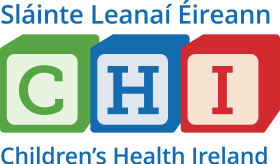Update on Strep A infection
Advice for parents and guardians on Strep A and Scarlet Fever. Group A Strep infections are generally a mild illness treatable with antibiotics
Dec. 8, 2022
News
The HSE can confirm a child under 5 has died from Strep A infection. Local Public Health is supporting the family and the school attended by the child.
Dr Éamonn O’Moore, Director, HSE Health Protection Surveillance Centre (HPSC) said, “The news of a child death with Strep A will be worrying for parents, but it’s important to know that most children who get ill from a Group A Strep infections will have a mild illness which can be treated with antibiotics.
“Group A Streptococci are a common bacteria that are often and usually relatively mild and self-limiting. They can cause infections like tonsillitis and pharyngitis and scarlet fever.
“The HPSC is closely monitoring Strep A and Scarlet Fever and as yet there is no evidence that a new strain is in circulation. There is likely a combination of factors as to why there has been a slight increase in infection this season, including increased social mixing following the pandemic compared to previous years as well as increases in other respiratory viruses. If anyone is unwell with winter virus type symptoms, stay at home to stop the spread, and this includes not sending sick children to crèche or school until they are better.”
The HPSC has contacted schools and childcare providers with information on Strep A infections, including Scarlet Fever, as well as other winter viruses.
Strep A infections – What should parents look out for? It’s always concerning when a child is unwell. Such infections cause various symptoms such as sore throat, fever, chills and muscle aches.
As a parent, if you feel that your child is seriously unwell, you should trust your own judgement.
Contact your GP if:
- your child is getting worse
- your child is feeding or eating much less than normal
- your child has had a dry nappy for 12 hours or more or shows other signs of dehydration
- your baby is under 3 months and has a temperature of 38C, or is older than 3 months and has a temperature of 39C or higher
- your baby feels hotter than usual when you touch their back or chest, or feels sweaty
- your child is very tired or irritable
Call 999 or go to an Emergency Department if:
- your child is having difficulty breathing – you may notice grunting noises or their tummy sucking under their ribs
- there are pauses when your child breathes
- your child’s skin, tongue or lips are blue
- your child is floppy and will not wake up or stay awake
There is a range of advice and information for parents and schools is available on the HSE and HPSC websites and further information on managing children who are ill is available at undertheweather.ie.
Please see information on coughs, colds RSV and viral infections children https://www2.hse.ie/conditions/colds-coughs-children/
